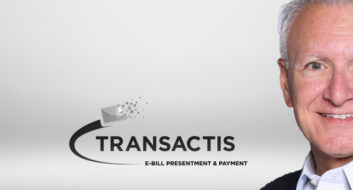When Is a Unicorn Really Worth $1 Billion?
Posted by | March 29, 2017
In an era of ambitious startup valuations, it’s important to remember how difficult it is to grow and sustain a viable ‘unicorn’ – a company with a billion-dollar price tag.
Today, there are 185 companies worth ten figures or more and, according to CB Insights, just 1.28% of all early-stage investments reach this milestone.[1] Last year, there was a significant drop in the number of venture-backed startups to climb to such heights.[2]
But what happens when a unicorn reaches that status and is unable to sustain itself? How much is a billion dollar valuation really worth? This isn’t a trick question.
We’ve seen the ‘death’ or downward spiral of many a unicorn in recent months.
Theranos’ ongoing legal trouble represents a fall from grace in the eyes of investors, who believe they were deceived by CEO Elizabeth Holmes’ bold technology claims. The healthcare company continues to bleed value and shut down labs.[3]
Or consider Zenefits, a cloud-based platform for company benefits and HR, which faced a much publicized ‘down round’ and significant headcount reductions. The company’s purported culture and regulatory concerns have cut a $4.5 billion valuation to $2 billion.[4] When companies stall, it’s very difficult to regain momentum and the confidence of customers and investors.
We’re even witnessing such precipitous declines after companies go public. When social media platform Twitter launched a public IPO in November 2013, the company was valued at nearly $40 billion.[5] Today, it’s dipped below $11 billion. All eyes are currently on Snap, Inc., which, despite an initial ‘pop’, has underperformed on the public markets.
So, just because someone thinks a company is worth a billion dollars one day, doesn’t necessarily mean that a company is always going to be worth a billion dollars. It also doesn’t mean that an acquirer will be willing to buy the company for that price. It is a tremendous milestone, of course, but ultimately it is just that, a step along the way in building, scaling, and learning how to lead a sustainable business.
We at Safeguard bring a very pragmatic approach to the market. We work with partner companies who seek to create long-term value for customers, anchored on a product-market fit which is viable, and a management team that’s not afraid to innovate. If one of the outcomes of creating such a business is achieving a billion dollar valuation, that’s a bonus, but we work hard to ensure our partner companies are building infrastructure that will outlive the buzz. For more than 60 years, we have pinpointed industries ready for reinvention and deployed capital to help provide more efficient technological solutions.
Companies like Transactis (financial services), MediaMath (digital media), and Good Start Genetics (healthcare) have each achieved significant scale in their respective industries, and their continued success is a manifest of creative management teams with a grounding in solid business fundamentals. Companies that can generate tremendous value for all stakeholders are the true ‘winners’.
Ultimately, at the end of the day, that’s what Safeguard cares most about – much more than potentially fleeting ‘unicorn’ status or a venture inflated by the handiwork of a public relations machine. If this philosophy resonates with you, please reach out to learn more about Safeguard’s model of working with entrepreneurs to provide capital and operational expertise.
[1] CB Insights, May 2015
[2] Bloomberg Businessweek, August 2016
[3] TechCrunch, January 2017
[4] Fortune, June 2016
[5] CNN Money, November 2013



